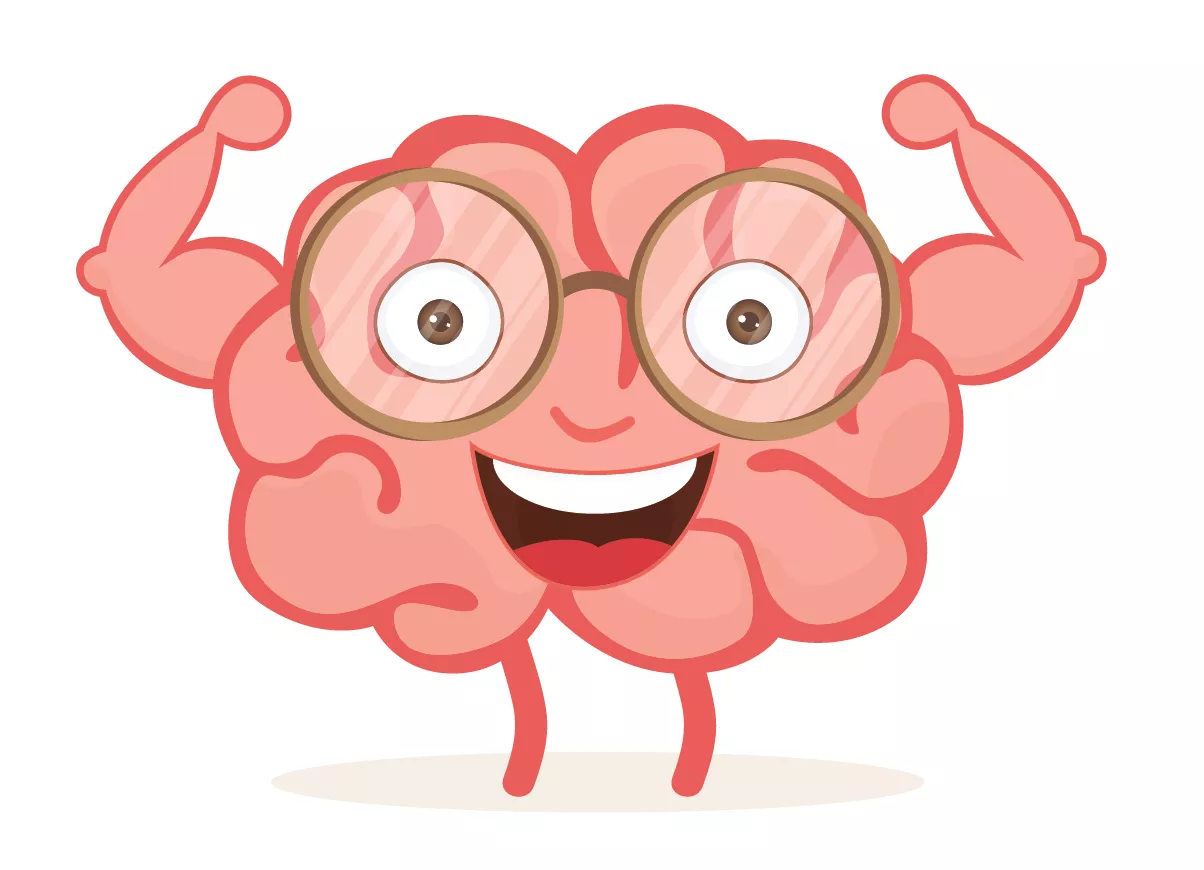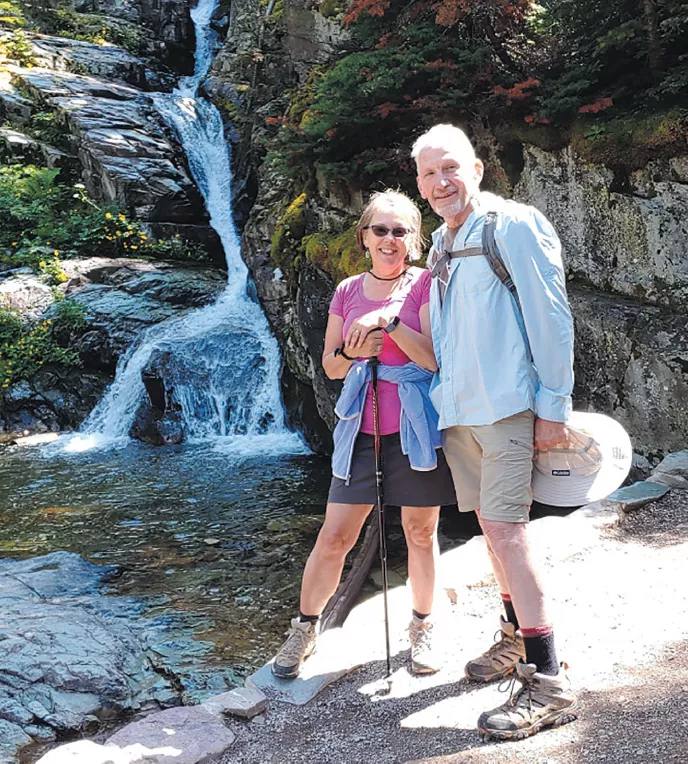Taking care of your mind and body can help fend off dementia
Brain health is a hot topic among older adults, and perhaps an even bigger concern for retired educators who have rigorously challenged their own brains throughout their careers, repeatedly nudging along students to do the same. And for Jeff Hoham there is even more to it.
About four years ago, his father was diagnosed with Lewy body dementia—a progressive disease that attacks and fetters brain cells as people age. Despite a growing body of research, the disease remains somewhat mysterious.
Hoham’s father passed away about a year ago, after three difficult years where his father steadily lost brain function and physical skills.
Though his father had difficulty communicating, in the end, he still recognized his family and responded to their care.
“It changed my approach to my life,” says Hoham, a former teacher and coach in the Lincoln Public Schools in Nebraska. “I began to pay close attention to not only
his brain health, but my own. Now I think about whether I will inherit dementia, but I’ve taken the ap- proach that while I can’t control my genetic tracking, I can control my diet, exercise, and step up my mental activity.”
Hoham’s ritual of workouts, careful eating, and stimulating and meditative activities are part of a regimen that experts now believe is likely to help fight dementia.
The science behind brain health
The Alzheimer’s Association defines dementia as “a decline in mental ability severe enough to interfere with daily life.” It affects about 50 million people worldwide, according to the World Health Organization (WHO). And about 70 percent of those who suffer from dementia have Alzheimer’s disease— when sticky plaque builds up between the brain cells, or when strands, called tangles, grow within the cells, hindering their function and ability to communicate through networks in the brain.
Major advances in our understanding of dementia have taken place over the last two decades. Keith Fargo, the director of scientific programs and outreach at the Alzheimer’s Association, says there is clear evidence that lifestyle choices help when undertaken throughout life. They probably fend off dementia in later years as well, and may even slow the disease, if it is already indicated.
Ronald Petersen, director of the Mayo Clinic Alzheimer’s Disease Research Center and a contributor to recent WHO guidelines for reducing the risk of cognitive decline and dementia, says an exhaustive report published in The Lancet journal in 2017 supports those helpful strategies.
“Interventions...including more childhood education, exercise, maintaining social engagement, reducing smoking, and management of hearing loss, depression, diabetes, and obesity might have the potential to delay or prevent a third of dementia cases,” the report found.
One of the best ways to slow mental decline, the WHO guidelines state, is by staying physically fit.

While any effort may be helpful, Petersen recommends 150 minutes a week of aerobic exercise—or vigorous walking, swimming, or jogging. Some experts believe exercise may reduce the risk of dementia dramatically by helping existing brain cells work better and building new ones.
“There is still a lot we don’t know, but I think we are begin- ning to develop a consensus around those certain lifestyle choices,” Petersen says.
The brain-body connection
Janis Swanson, a retired teacher who worked in two school districts north of Seattle, says, “I most certainly had concerns about how to keep my brain healthy and engaged when I retired three years ago.” She thinks educators are more aware of issues of brain health, adding, “After all, we are the ultimate role models for lifelong learning.”
Swanson believes the concentration, relaxation, and physical workout from her yoga class are beneficial. She and her husband also travel and add to the educational value of their trips by reading fiction and history about the places they visit. Swanson is also active in Washington Education Association-Retired.
Ernest Holley, a teacher and guidance counselor for 34 years in Staunton, Va., and former president of the Virginia Education Association-Retired, encourages educators to take note.
“I do not believe many think about this issue enough,” says Holley, who exercises for 30 minutes each day, sings in a choral group, and keeps score for his former high school’s basketball team. He believes learning the music for the choral concerts is particularly stimulating. And some research indicates that playing or listening to music may be good for the brain.

The brain benefits of good nutrition
Research increasingly shows that a healthy diet can also improve brain health. The WHO guidelines recommend a Mediterranean-style diet with olive oil, legumes, unprocessed grains, and some dairy to “reduce the risk of cognitive decline or dementia.” The diet is high in antioxidants and omega-3 fatty acids that have been shown to protect the brain and improve verbal and visual memory, according to a 2018 study.
WHO recommends no smoking and limited consumption of alcohol. In addition, older people should control diabetes, hypertension, and elevated lipids, such as triglycerides or cholesterol, to improve brain health. Some research has also found a strong connection between adequate sleep and maintaining acuity.
Fargo notes that routine physical exams often overlook brain health, even though Medicare will pay for it. He advises that older adults should request an evaluation.
Lifelong learners may have healthier brains
Despite much media attention tying “brain games,” such as cross- word puzzles and sudoku, to brain health, there is debate about whether these “mental exercises” help stave off or reverse deteriora- tion of brain cells. Some experts believe that beyond puzzles or routine exercise for the brain, the real payoff comes from intellectual engagement and learning new information.
A stream of research over the last 20 years suggests that active leisure activities—such as hobbies, reading, visiting friends, or volunteering—can help grow new brain cells, slow the loss of other brain cells, and grow cognitive reserve, which provides backup as we lose some brain function.
More recent research suggests that specifically learning new things benefits the brain the most. The National Institute on Aging at the National Institutes of Health has noted that older adults who took an acting class or learned photography had less cognitive decline than others their age.
“I think educators should act the way they hoped their students did, by being engaged and keeping their brain focused,” says Rod Ellcessor, who retired from Indianapolis Public Schools and now serves as president of the Indiana State Teachers Association-Retired. “You have to be involved in something—learning and figuring things out and making decisions.” In addition to staying physically fit, Ellcessor says his work in education statewide and in district-level issues keeps his mind active. He also reads for two to three hours a day.
“You need to do something else that forces your brain to work and learn,” says Julie Brody-Magid, clinical director of the Memory Disorders Assessment Clinic at Harvard University’s McLean Hospital. “Don’t just focus on one new thing, either. It’s just like exercising your muscles. If you do only biceps curls, your arms will get stronger, but your legs won’t.”
When Not to Worry
Many people become concerned that occasional “senior moments” are a sign of a larger problem. But some changes in brain function are a normal part of the aging process. Here are some guidelines from the National Institute on Aging to help you know the difference. For more information, go to nia.nih.gov, and search “dementia.”
Normal changes as we age
- Making a bad decision once in a while
- Missing a monthly payment
- Forgetting which day it is and remembering it later
- Sometimes forgetting which word to use
- Losing things from time to time
Signs of mild cognitive impairment
- Losing things often
- Forgetting to go to important events or appointments
- Having more trouble coming up with desired words than other people of the same age
- Can do normal activities and take care of themselves
Symptoms of dementia
- Personality changes
- Memory loss
- Problems with language skills or having conversations
- Trouble paying attention
- Getting lost in familiar places
- Inability to follow instructions
- Becoming confused about time, people, and places
- Often making poor judgments and decisions
- Problems taking care of monthly bills
- Misplacing things often and being unable to find them



